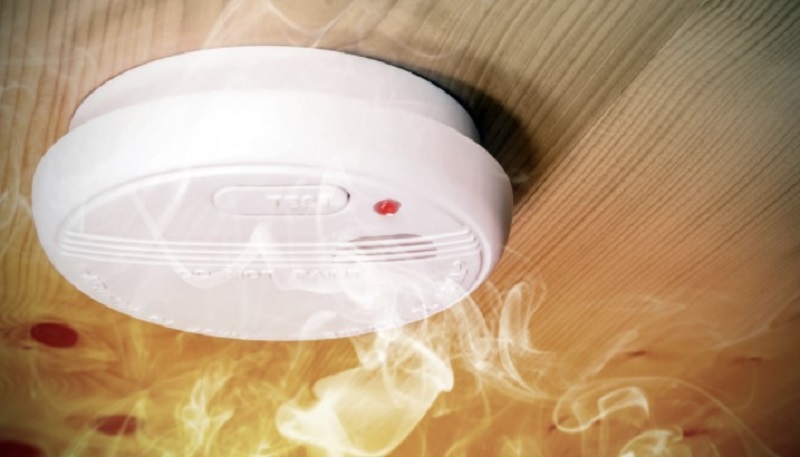The purpose of a carbon monoxide detector is to alert users of extreme CO levels in their homes.
Carbon monoxide poisoning is one of the common killers, and having a CO detector helps save lives. Because the device is vital to the safety of users, it always gets scary whenever it malfunctions.

CO detectors work by beeping or flashing lights in case of danger. However, this may also happen under various other conditions.
Understanding what you should do before attempting to stop a carbon monoxide detector from beeping is essential.
Contents
Determining the kind of beep
Once the CO detector beeps, pay attention to the nature and kind of sound it produces. For most detectors, different beeping patterns mean different things.
The most common are the four-beep alarm, consistent chirping, intermittent random beeping, and one long continuous squeal.
Intermittent beeps do not have any established plan. They do not have any pattern whatsoever. Fortunately, these do not indicate a CO leak and may be caused by various factors.
An intermittent beep on a carbon monoxide detector can mean:
- Loose or wrongly installed batteries
- The batteries are not of the right voltage or type
- Dirty alarm sensors
- The sensor is reacting to extreme environmental factors like humidity, temperature change, and improper airflow
- Power surges, which often will affect the functioning of other devices
- Overused device
Troubleshooting an intermittent beep on a carbon monoxide detector
Given the many possible causes, discovering and resolving the exact cause may be challenging.
However, with the troubleshooting tips below, you should be able to fix the problem.
Step 1: Check battery issues
The last thing you would want to hear any time of the day is the carbon monoxide detector beeping every minute. The sound may be more annoying if it happens in the middle of the night.
This kind of beeping indicates a dead battery or malfunctioned alarm.
- The first thing to do is to reset the alarm. If the beeping continues, replace the battery, especially if you have been using it for a while. Have a spare battery in your home for such emergencies.
- If you recently replaced the battery, the beeping might be due to loose or incorrectly placed batteries. If this is the case:
- Get the detector and remove the battery cover.
- Confirm that you are using the right batteries for the device.
- Check the use-by date to ensure that they have not expired.
- Take them out, place them back into the device, and confirm that they are not loose. Replace the cover.
In most cases, this should resolve the beeping issue. If the device has been used for more years than recommended, you may also need to replace it.
Step 2: Clean the sensing chamber
The carbon monoxide detector uses three sensors to detect CO in the air – the biometric, electrochemical, and metal oxide sensors.
These sensors work by reacting with carbon monoxide in the air and sounding the alarm if the levels become too high.
They are fitted with an air filter, which can become clogged with dust, dirt, or other air particles. As a result, the alarm’s effectiveness reduces, and the detector may start beeping intermittently to alert you of the problem.
To resolve this, clean the sensing chamber using a damp cloth.
Step 3: Check your environment
Carbon Monoxide detectors depend on airflow to function, and sometimes, changes in the environment can affect how the alarm works.
Some of the common factors that reduce their efficiency include condensation, steam, and moisture. In severe cases, they contribute to reasons why the carbon monoxide alarm goes off for no reason.
If you think that any of these factors are causing your detector to beep irregularly, you will need to check the temperatures and try stabilizing them.
Also, move the device away from air vents since these can distort the carbon monoxide reading.
We’ve created a carbon monoxide detector placement guide to help you identify the best locations and avoid false positives.
Danger signs to watch out for
Carbon monoxide spreads faster in the air so long as there is adequate ventilation. You need to take action if the detector makes consistent beeps and you or anyone experiences the following symptoms:
- Weakness, dizziness, and confusion
- Loss of consciousness
- Blurred vision
- Headache
- Difficulty in breathing
Even if the carbon monoxide detector goes off in the middle of the night and you think that there is a possibility of high CO levels, leave the house immediately.
If anyone is showing signs of poisoning, get them outside the home. Allow them to breathe fresh air and call emergency service for treatment.
Understanding the different forms of carbon dioxide detector beeps can help you detect simple device malfunctions and resolve them accordingly.
